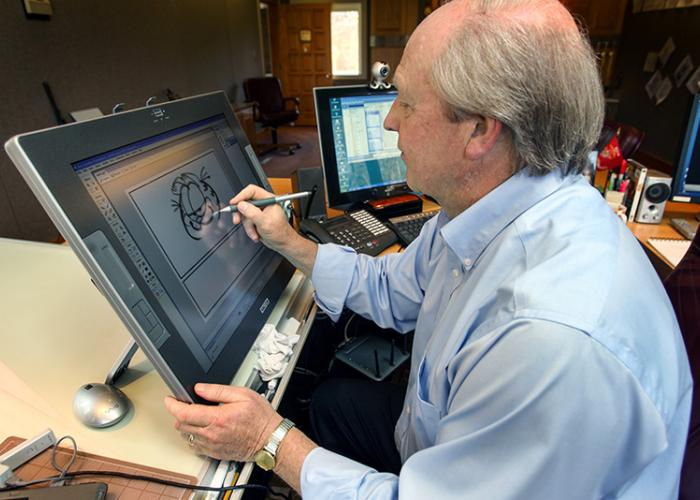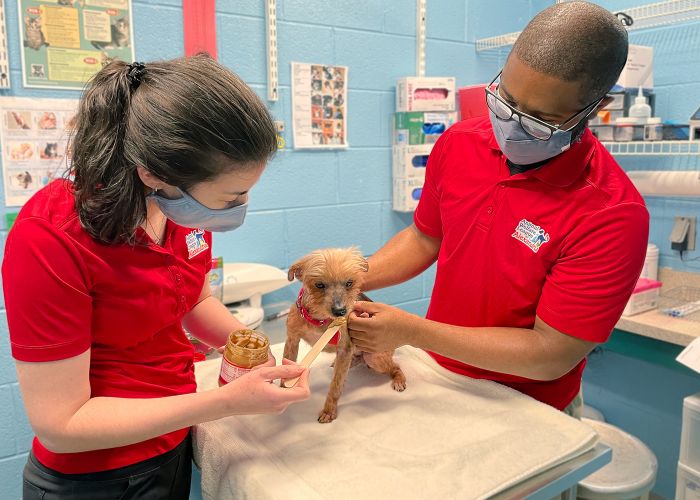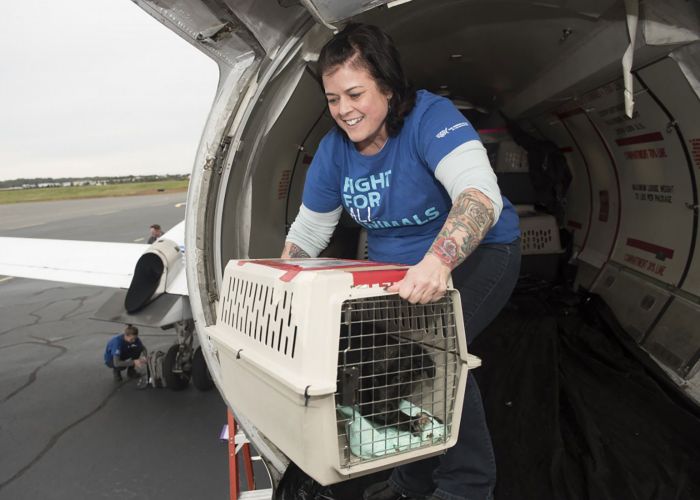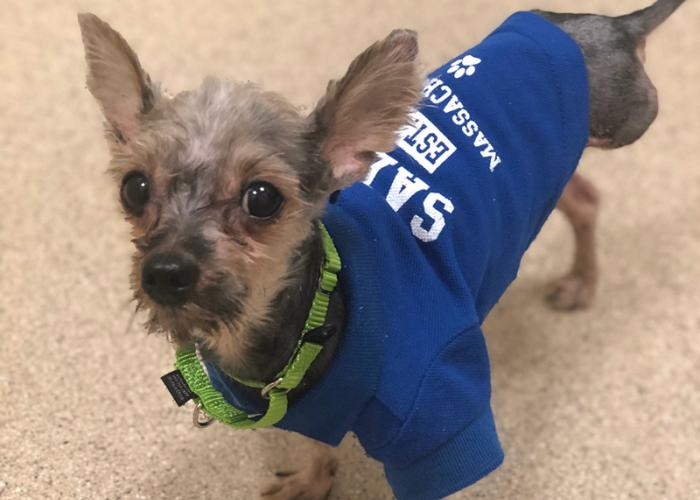The little clinic that could
Animal Care Expo legacy is still going strong at a West Virginia spay/neuter clinic
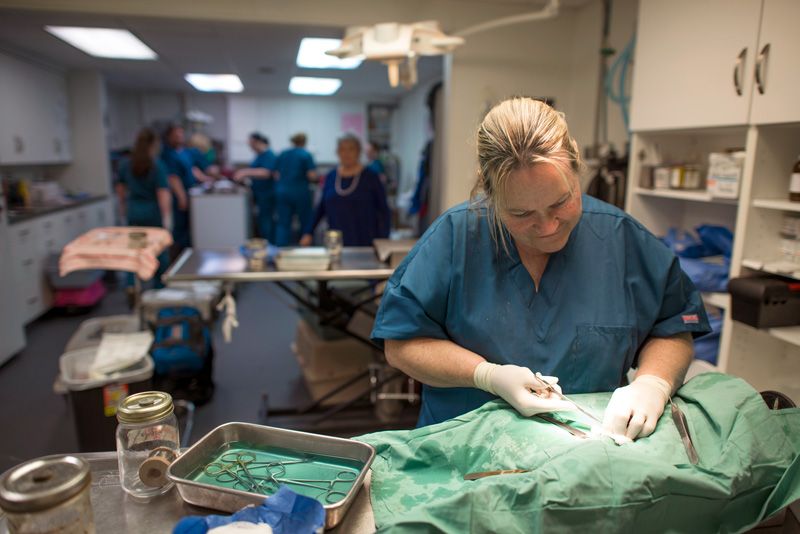
As Donna Spencer tells it, one of her most life-altering experiences took place 22 years ago during a visit to Las Vegas.
She didn’t win (or lose) a fortune at the casinos or get married at a drive-through chapel. What Spencer did in Vegas was even more meaningful, and it would impact countless lives in the years to come.
It was 1996, and Spencer was attending The HSUS’s Animal Care Expo for the first time. She was accompanied by four other board members with Help for Animals, a grassroots group in Huntington, West Virginia. Months before the conference, Spencer read the list of workshops and knew this was what her group needed, even though their tiny nonprofit didn’t have money for travel. Each of them would have to pay their own airfare and conference fee.
“We had to do something,” she says. “I believed the board needed to be educated. There was so much I didn’t know.”
Help for Animals was founded in 1973 to combat pet overpopulation, and by the mid-’90s, it was subsidizing between 300 and 600 spay/neuter surgeries a year at local private practice clinics, relying on bake sales, garage sales and white elephant auctions to raise money. The group’s members were working hard, but it wasn’t nearly enough: Local shelter euthanasia numbers were increasing year after year.
At Expo, Spencer met Esther Mechler, founder of Spay USA (now named the United Spay Alliance), and Marvin Mackie, a private practice veterinarian in Los Angeles. During their workshop on high-volume, high-quality spay/neuter clinics, Spencer found a new direction—and renewed hope.
Back home, she laid the clinic information she’d received in front of her husband, Jim, the CFO of a local hospital. Did he think Help for Animals could run a successful spay/neuter clinic in a region the size of Huntington?
“Donna was excited,” Jim remembers with a chuckle. “She was unbelievable. She asked me every damn day.”
Huntington is on the western border of the state, close to Kentucky and Ohio. Jim did some research. “Yeah,” he told her. “We probably could.”
With a $44,000 bequest, Help for Animals rented a building that once housed an Arthur Treacher’s Fish & Chips restaurant and started renovating it with volunteer labor. The group acquired most of its medical equipment secondhand, donated by the hospital where Jim worked. They met with Kelly Pinkston, a local veterinarian who was interested in their mission, and arranged for her to train with Mackie in Los Angeles. The Spencers also traveled to LA to learn about clinic administration.
A year after that Expo, the first low-cost spay/neuter clinic in West Virginia opened on Feb. 25—Spay Day—and was immediately “bombarded by appointments,” says Spencer.
In the early years, Help for Animals could only afford to pay the veterinarian and a technician; all the clinic’s office staff were volunteers. Jim remembers how he and his wife sometimes used their own money to cover expenses. Still, they persevered.
Mackie, who retired in 2007, visited the West Virginia clinic several times during its first years of operation. “What set them apart was the ‘can-do, will-do’ attitude of the drivers: Jim, Donna and Dr. Kelly,” he says.
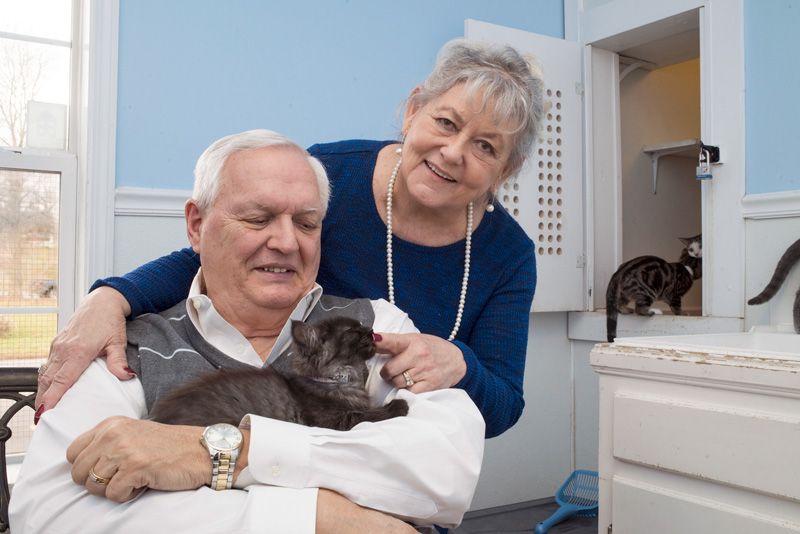
Today, the clinic has 19 paid staff members and works with 38 rescues and shelters in the tristate area. It has moved from the tiny Arthur Treacher’s building to a space that is currently being expanded to 5,000 square feet—enough to accommodate a second vet and more surgeries.
Always mindful of the mentorship that made their success possible, the Help for Animals team has trained staff and volunteers from nonprofits in other parts of West Virginia and neighboring states to launch similar clinics. “We’ve proven it doesn’t have to be New York City or Chicago” to have a successful spay/neuter clinic, says Spencer.
Now retired from their paid jobs, the Spencers continue to devote much of their time to volunteering, and Jim serves as the president and CEO of Help for Animals. Always eager to improve their operations, the couple have continued to attend Expo over the years.
“It’s just a wealth of information,” says Spencer.
Mechler, who provided a lot of guidance in the clinic’s early years, points out that “it is because of people like Jim and Donna that we have seen about an 80-percent reduction in shelter intakes in the U.S. since the late 1980s. They gave their vision of ending the pet surplus in West Virginia their all.”
Looking back, the couple is amazed at how much things have changed in their community. In 1997, the municipal shelter was euthanizing nearly 6,000 animals a year; that number is now less than 900. Meanwhile, the clinic has sterilized more than 160,000 animals and treated thousands more at its monthly wellness clinics.
Thankfully, what happened in Vegas 22 years ago didn’t stay there. Initially, not everyone in Huntington had been willing to take the risk of launching a clinic: “They didn’t think it could be done,” says Spencer. “But they weren’t at Expo.”


